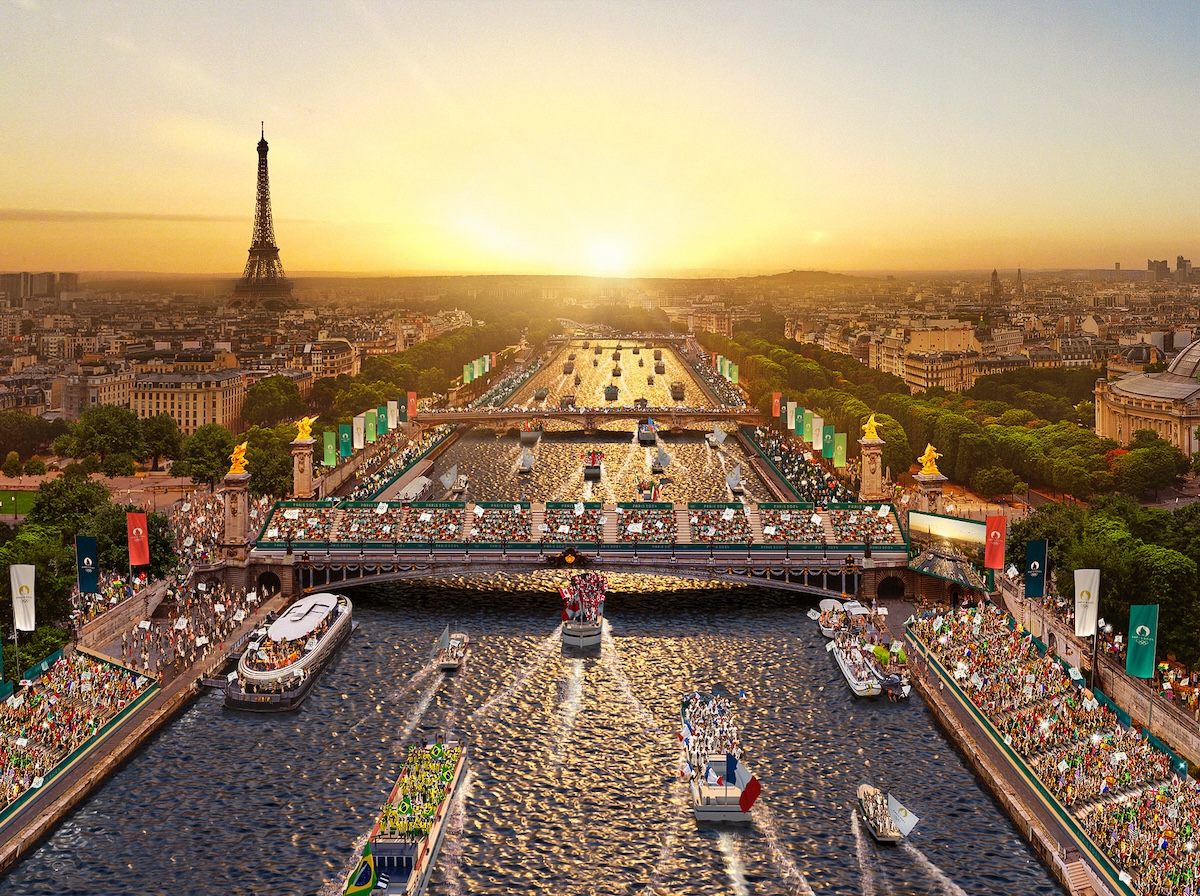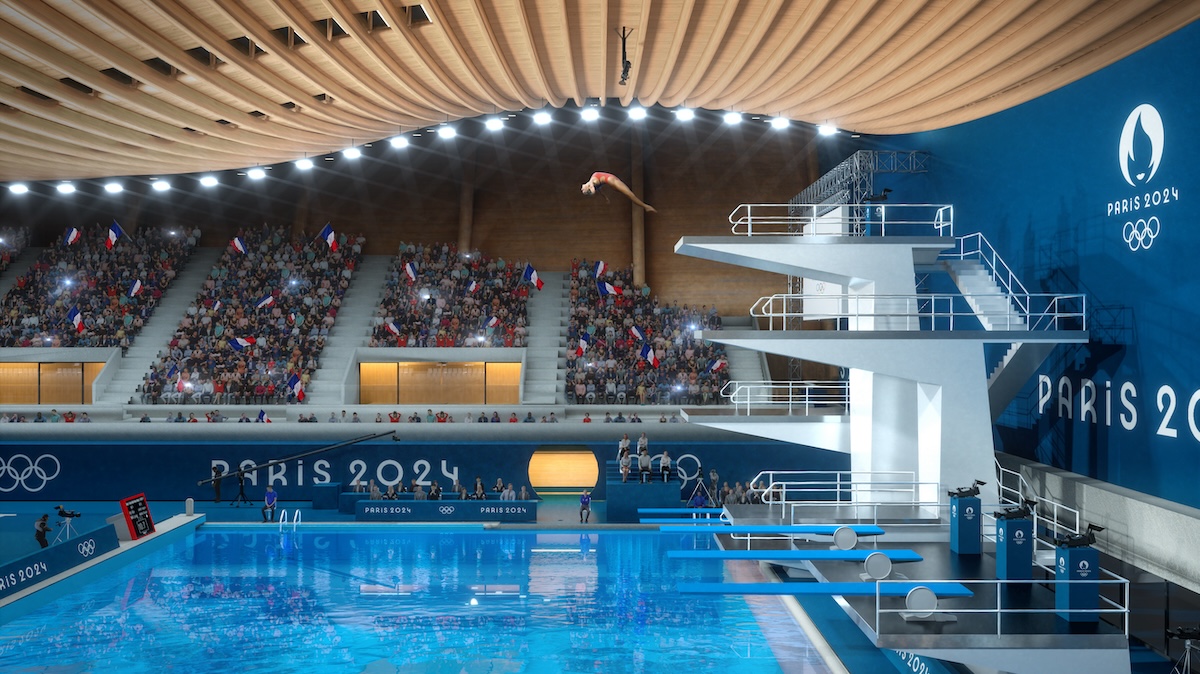We may earn revenue from the products available on this page and participate in affiliate programs. Learn More ›
The fact that the 2024 Olympic Games in Paris are right around the corner isn’t news to anyone. However, what you may not have heard is that this year’s games are going to be the most sustainable in the history of the Olympics. In preparation, Paris has taken measures to cut down on carbon emissions, conserve resources, and benefit its citizens long after the closing ceremony. Continue reading to learn more about the Paris Olympics sustainability goals and the steps that have been taken to achieve them. You just might find some inspiration for your next home improvement project.
Paris aims to set a high standard for sustainability in 2024 and beyond.

Just as home builders have been adapting to climate change and the threat it poses, so too have the organizers of the 2024 Olympics in Paris. The city may not have been awarded the 2024 games until 2017, but their plans to make this year’s games the most sustainable began before they were officially selected as the host city. Indeed, the 2024 Summer Olympics will be the first games to be guided by the Paris Climate Agreement, as well as the first to fully align themselves with the ideals set forth by the Olympic Agenda 2020.
The carbon footprint of this summer’s Olympics will be half of that of previous games. The organizers are also promising to provide a second life for 100 percent of all of the temporary infrastructure, furniture, and sporting equipment used for the games. Moreover, the city is moving to clean up the Seine River more quickly, making it possible for citizens to begin swimming in it as early as 2025.
95 percent of competition venues are either temporary or modified preexisting structures.
Many cities that have hosted the Olympics in previous years have spent billions of dollars building new stadiums and infrastructure to support the games. However, after all the athletes have come and gone, many of these investments are no longer needed or used. To avoid this—and all the resources that would go to waste to build single-use arenas and stadiums—95 percent of the venues for the 2024 games are modified from existing structures or designed to be temporary.
These temporary structures require far less materials than would be necessary for constructing permanent buildings. In addition, because temporary structures have a more minimalist design, the construction process is greatly simplified. This allows for decreased CO2 emissions, making them a much more sustainable option. After the games, the structures will be disassembled and the components reused for new purposes.
The only permanent new sports facility, the Aquatic Centre, was designed with sustainability in mind.
The Aquatics Centre is the only full-fledged sports facility that was built for the Paris Olympics. Throughout the design and building process, however, planners were thoughtful about reducing its environmental impact and making sure the structure would continue to serve the surrounding community after the games. Some of these details include bio-based and sustainable building materials, photovoltaic panels on the roof that supply solar energy, and interior seats that are made from recycled plastics. You can follow suit and consider installing solar panels on your home or opting for more sustainable materials when undertaking your next DIY or major home renovation project.
Beyond building a low-carbon center with sustainable materials, the placement of the facility was also carefully selected. Organizers chose to put it in the Seine-Saint-Denis district, an area that, up until this point, hasn’t had major sporting infrastructure.
With slight modifications, the newly constructed Olympic Village will be transformed into residential and commercial spaces after the games.

Next to the Aquatic Center, the Olympic Village comprises the only other permanent buildings constructed for the games. It, too, was artfully thought out and designed with sustainability in mind. Natural ventilation, water management systems, and other green building techniques were utilized when constructing the complex. One-hundred-percent renewable energy is being used to power the entire Olympic Village, and some of the buildings even have rooftop gardens to further help with maintaining comfortable indoor temperatures.
Moreover, after the games have come and gone, the complex will not simply sit and waste space. Instead, it will be converted into residential and commercial spaces. One-quarter of the apartments will be designated for public housing. The plans will allow this transformation to take place without any major new construction needs, further reducing the environmental impact of the project
Food preparation efforts also focus on sustainability and reduced carbon emissions.
Paris’ focus on sustainability extends much further than just the construction of Olympic venues. One of the many other measures they’re taking to reduce the overall environmental impact of this year’s games is through food. This includes providing more plant-based options, composting uneaten food, and cutting back on single-use plastics. If you’re interested in reducing your environmental impact at home, consider creating a compost bin or implementing a simple recycling routine.
Another notable change to this year’s games is that spectators will be permitted to bring a reusable bottle into Olympic venues. Seven hundred water and soft drink fountains have been installed throughout the venues, providing opportunities for individuals to refill their bottles. Not only will this policy change save patrons money, but it will also significantly reduce waste. Consider following Paris’ lead by switching to a reusable water bottle, if you haven’t already done so. Swapping out for other sustainable household products, such as silicone storage bags, reusable straws, and LED light bulbs, can further increase your positive impact.


